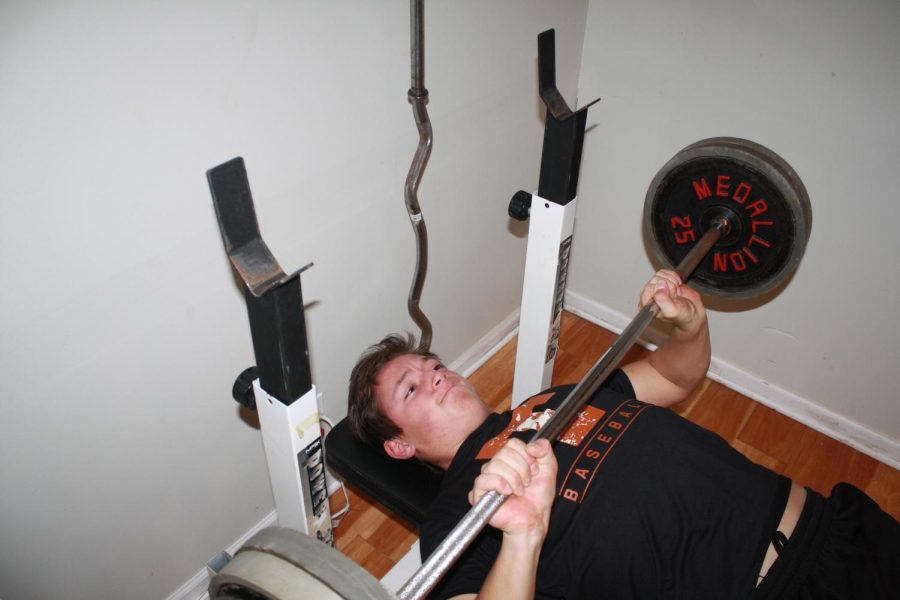Athletes build up by bulking, cutting calories
Most students use a fork, spoon and knife to eat their lunch, but when bulking and cutting, junior NJ Gott requires an additional utensil: a mini scale. Gott uses the scale, along with an app that tracks the amount of calories in his meals, to meet his goals for his bulking diet.
“When I was young, I was on the chubbier side,” said Gott. “I then got taller and slimmed down a little, so [I tried bulking intermittently] to put on a bunch of muscle the past few years.”
Sports dietician Deb Ognar said in a phone interview that some athletes employ a bulking and calorie cutting diet to obtain an optimal strength-to-weight ratio and achieve peak performance.
Bulking is the consumption of excess calories to facilitate maximum muscle growth.
When bulking, people may reach a point where they start to see negative results, gaining a disproportionate amount of body fat compared to the amount of muscle gained, nutritionist John Brooks said in a phone interview.
Calorie cutting, which typically follows several weeks of bulking, creates a calorie deficit. This involves burning more calories than the amount consumed, with the aim of keeping the muscle gained from the bulk and losing excess fat.
According to Ognar, athletes should generally not make major body composition changes, including bulking and cutting calories, during their sports seasons because big swings in weight can affect performance and energy levels.
According to Brooks, people who are bulking and cutting will often use calorie tracking apps to measure their caloric surpluses and deficits.
It is hard to effectively keep track of calorie consumption without an app, but it is important to not be obsessive about it, Brooks said.
“What the tracking does is it really allows you to take inventory of what you’re actually doing,” said Brooks. “Otherwise, it would be like trying to balance a checkbook without knowing what’s coming into your bank statement and what’s going out.”
It is important that those employing the diet maintain a healthy relationship with food, as some force themselves to eat too much when bulking, Brooks said.
“I’ve dealt with younger athletes gagging up food because they’re trying to gain weight, [but] there’s just smarter ways to [gain weight],” Brooks said.
According to Ognar, some athletes feel the need to consume excessive amounts of protein or take dangerous, unregulated supplements to meet their goals, but both are unnecessary with a proper diet.
Teenage athletes should seek out professional advice from an exercise physiologist or sports dietitian instead of making choices based solely on online information that could be incorrect and could harm performance and health, Ognar said.
According to Gott, although his bulking and cutting diet has paid off, he does not necessarily recommend it to other teenagers.
“It depends on what your goals are,” said Gott. “If you want to compete in a weightlifting sport …, I’d say it’s beneficial, but as an athlete, I’m not entirely sure it is.”


